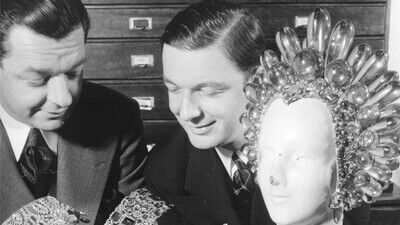In an interview with RogerEbert.com, Kristin Joseff, part of the family’s third generation to run the business, talks about the exhibit, the Joseff detour into the aerospace business, and expanding via social media and online ordering.
Let’s start by talking about you. Where did you grow up, and what did you do before you came to Joseff?
I grew up in Northern California. Previous to working at Joseff, I worked in home health care as a case manager for a non-medical home care agency.
That takes a lot of organizational skills, which I’m sure have come in very handy.
It does. That was a big reason why my husband asked me to come over to the company.

I know that the original Joseff was not originally in the jewelry business or in California.
We discovered that Eugene Joseff, who started this company, had a grandfather who was a jeweler, but he was a fine jeweler, not a costume jeweler. Eugene made his money doing ads, but jewelry was his hobby. In the late 1920s, he came out to Hollywood, as did many others. And he got his foot in the door by doing ads. We even, have some of his old original sketches. He got to be friends with the costume designers and that seems to be how he fell into the Hollywood crowd. He was criticizing the fact that actresses were wearing their own contemporary jewelry in these period films that were coming out and he was challenged: “If you can, do better,” and so he did.
How did he do research for the period pieces he created?
He amassed a huge reference library. We still have most of it. There are hundreds of books about 17th-century French jewelry. He’s got ladies’ journals going back, I think, to its inception. We have leather-bound Harper’s Bazaar volumes going back to the 1880s. And he was inventive. He was befriended by costume designer Walter Plunkett, who was told that the censors had deemed the costumes too racy, because they showed too much bosom. So he came up with these pieces called cleavage, which are like a brooch or an ornament that was sewn into the cleavage and looked like an adornment. But really, it was to save the costumes from having Walter Plunkett have to redo them.

